|
Note: I’m the board of IABC DC Metro, and I often share content related to communications to my blog. I found this article on crisis communications insightful. Catalyst is the official publication of IABC. By: David Whitely
It’s been long-held in crisis communications that the actions taken in the first 60 minutes are crucial for managing how an incident will be perceived, reported and managed. And despite this, it’s incredible how many organizations seemingly fall at this first hurdle. Those first decisions made as an incident unfolds — what has become known as the “golden hour” — can often determine whether one maintains some control over the reporting of an incident or finds oneself constantly chasing a narrative dictated by others. During my career with roles in government, regulation and aviation, I have dealt with many challenging incidents as part of a communications team. There have been times when one may feel like they’re not in control of the story and, gradually, the control of the narrative slips away. With the advent of the 24-hour news cycle, digital communications and social media, coupled with the demand for instant reporting, the golden hour is fast becoming a thing of the past.
0 Comments
Note: My fellow IABC DC Metro board member, Sue O’Hora, wrote the following article for her LinkedIn newsletter, “Video for Communicators.” I found the piece extremely valuable, and I wanted to share. Sue is a writer, producer and director at Rising Night Productions, a video production company in Washington, DC. By Sue O'Hora
A few months ago, I stumbled upon an article about “niching down.” There are lots of articles out there on the topic (I’ve linked a couple at the bottom of this post), but the basic gist is that a service provider simply can’t serve everyone. You need to be able to narrow down your target market to the people who are a perfect fit for what you offer. This clarity helps you become more efficient, more effective in your messaging, and ultimately more profitable in your business. Video production skills are incredibly flexible and can be applied to an enormous number of creative challenges, but I’m starting to become a true believer in the idea of “niching down.” The Value of Knowing Your Audience At the beginning of every video project, I ask the client to describe their audience. Whenever someone answers “everyone,” I know that we have work to do before we’ll be able to start production. Even if you were making a video about ice cream sundaes, you would need to think about whether your audience is made up of foodies who want information about the lovingly-crafted ingredients that make the very best sundaes or shoppers who might be looking for ways to step up their family’s home sundae game. Just as it’s extremely difficult if not impossible to make a video for “everyone,” it’s very difficult to market your business to everyone. Note: I’m the board of IABC DC Metro, and I often share content related to communications to my blog. I found this article on generative artificial intelligence (AI) interesting. Catalyst is the official publication of IABC. By: Matt Russell
The landscape of our profession is being transformed by generative artificial intelligence (AI) tools like ChatGPT, redefining what’s possible in communications. While some organizations have embraced these tools and are positioning themselves for the future, others have been slower to do so and risk falling behind. Over the past year, the Mayo Clinic communications department has formally adopted generative AI and taken the first steps toward building a future with possibilities we’re just starting to imagine. We’ve implemented dozens of use cases that save time and energy, generate insights, optimize content and elevate our work. Our media relations team developed a prompting guide to integrate generative AI into its workflows, and a growing team of super users is driving a culture of continuous learning. Generative AI is not a passing fad. Effectively using it is becoming an essential part of the modern skill set for communicators, and taking the first steps in using these tools is imperative. Here are key lessons learned in taking those critical first steps to generative AI adoption, based on our work at the Mayo Clinic communications department. Note: I’m the board of IABC DC Metro, and I often share content related to communications to my blog. I found this year end wrap up of Catalyst content to be a helpful resource. Catalyst is the official publication of IABC. By: Dawn De La Torre
Let's reflect on the thought leadership that defined communication trends in 2023. Last year, a spotlight shone on the intersection of artificial intelligence and communication, followed by a focus on environmental, social, and corporate governance (ESG), well-being, and diversity, equity, and inclusion (DEI). Check out all the top articles, podcasts and webinars that grabbed readers’ attention: Articles
Note: I’m the board of IABC DC Metro, and the article below was published this month in IABC Catalyst. I often share such communications discussion to my blog. By: Kim Clark
We are in a time of ongoing, compounding, significant global humanitarian crises and our organizations and clients are woefully unprepared — even after trying well-intentioned work around diversity, equity and inclusion. In a crisis, the initial reflex remains fixed on safeguarding the affected communities — making sure they are safe and protected and their pain is acknowledged. Then there are those who are not directly impacted who may not have the same historical, social context and understanding surrounding the social crisis. They may want to learn more and do something. Their pain is in feeling helpless, fearing saying or doing the wrong thing, which often leads to good people doing nothing. This is the pattern we must break as organizations and as communicators. We’ve been kicking the can down the road rather than picking it up and recycling it into something truly useful that leaves the street cleaner. The go-to statement draft speaks of how we are in solidarity with the impacted community. We may mean well and believe we’re saying the right thing but, hopefully, we’ve learned something since the summer of 2020 — the last time the world went to the streets to speak up and show up, recognizing that solidarity is incomplete and ineffective for meaningful change. Note: the following article recently appeared in Catalyst, the official publication of the International Association of Business Communicators (IABC). I’m on the board of IABC DC Metro, and I enjoy sharing communications-related content. By: Jeff Hutson, ABC, IPC, CRC®
Effective use of meaningful research may be the most challenging task you face. Yet it’s the factor most likely to drive your communications campaign. That’s why many communication planning models begin with research. My go-to is the RPIE approach — research, planning, implementation and evaluation. The best planning and brilliant creative ideas always have their foundation in solid research. Get that first step right — thoroughly knowing what your audience thinks, feels and believes — and your campaign has a better chance of delivering exceptional results. Note: the following article recently appeared in Catalyst, the official publication of the International Association of Business Communicators (IABC). I’m on the board of IABC DC Metro, and I enjoy sharing communications-related content. By: David Zelnio
With more than 10 million job openings in the U.S. alone, organizations are struggling to find qualified workers to fill roles. Communication professionals have an opportunity to employ strategic vocational branding to help fill talent needs. Vocational branding aims to inspire individuals to pursue a particular career path by effectively communicating value, purpose and rewards. While informal vocational advocates are plentiful — through career fairs and classroom presentations, for example — few undertake rigorous branding efforts to define a target audience, brand personality and narrative. Branding builds awareness, generates interest and establishes a positive perception of the targeted profession among the intended audience. The ultimate goal is to encourage individuals to consider, choose and commit to a specific career based on the brand's positioning and the compelling narrative created around the vocational opportunities it represents. Note: the following article recently appeared in Catalyst, the official publication of the International Association of Business Communicators (IABC). I’m on the board of IABC DC Metro, and I often share content on communications. By: Tony Stewart
Old habits die hard. As some managers mandate a return to the office, empowered employees — invigorated by the proven performance of remote working — are pushing back and demanding flexibility. If companies demand in-person attendance, they must make flexible working equally viable. But such flexibility is resulting in people becoming overwhelmed — in their personal and work lives. We’ve got access to everything we need, all the time from the comfort of our living rooms. It’s connectivity for connectivity’s sake. We’re digitally joined up with more people than we’ll ever interact with, never mind talk to. The result? Global organizations are struggling to streamline their communications, to overcome the noise and chatter this hyperconnectivity has caused. Now they’re in full retreat — cutting back on their channels to aid budget and save attention spans. We, on the other hand, don’t know where to prioritize our time and energy. That can make joining a network, for business or leisure, a hard sell. The risk is that avoiding networks could mean siloes, isolation and a lack of creative collaboration. People don’t join companies for a solid social life.
By: Matt Russell
In a world where time and energy are limited resources, accomplishing everything within the constraints of a day can be a challenge. However, the advent of ChatGPT has brought about a fundamental change. We now have the convenience of accessing artificial intelligence (AI) that can significantly speed up tasks and reduce effort. This not only enhances the quality of our work but also frees up more time and energy to focus on more valuable and fulfilling endeavors. The key lies in taking that first step. A recent survey conducted by the Pew Research Center revealed that a mere 12% of Americans have utilized ChatGPT for work-related tasks. As we continue to explore the boundless potential of ChatGPT and similar tools, it's crucial to acknowledge that we are still in the early stages of fully comprehending their capabilities. This presents an excellent opportunity to embrace the possibilities offered by AI and give it a try. Blue Swift Consulting’s Alyssa Cox Concludes IABC DC Leadership Series with “Leading Through Vision”6/16/2023 Note: I serve on the IABC DC Metro board, and I wrote the following piece for the chapter's website. By Eli Natinsky
Alyssa Cox of Blue Swift Consulting discussed the importance of setting a path that speaks to how an organization drives progress toward its overarching mission at IABC DC Metro’s “Leading Through Vision” on May 17. The webinar was the second of the chapter’s two-part leadership series. “Vision helps us articulate what we need to be working on and it gives us guidelines for making strategic decisions for how we spend our time, where we deploy resources, and how we define success,” she said. |
AuthorI'm Eli Natinsky and I'm a communication specialist. This blog explores my work and professional interests. I also delve into other topics, including media, marketing, pop culture, and technology. Archives
April 2024
Categories |
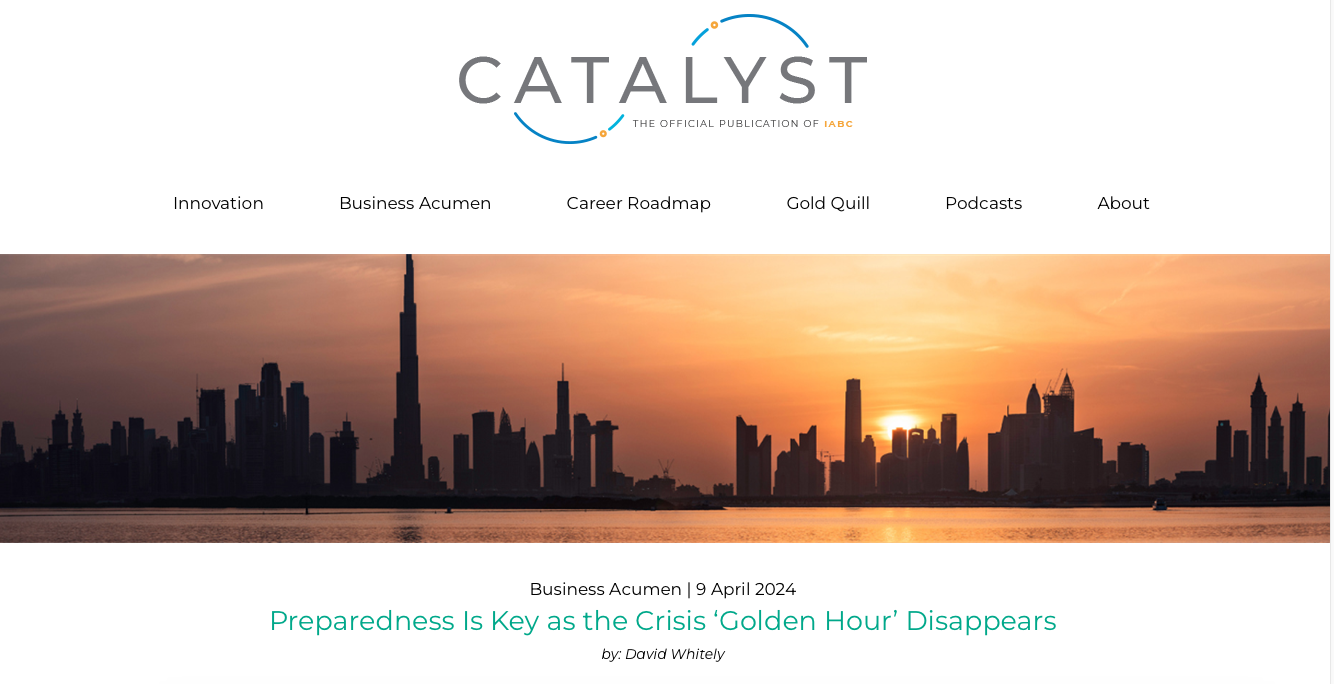

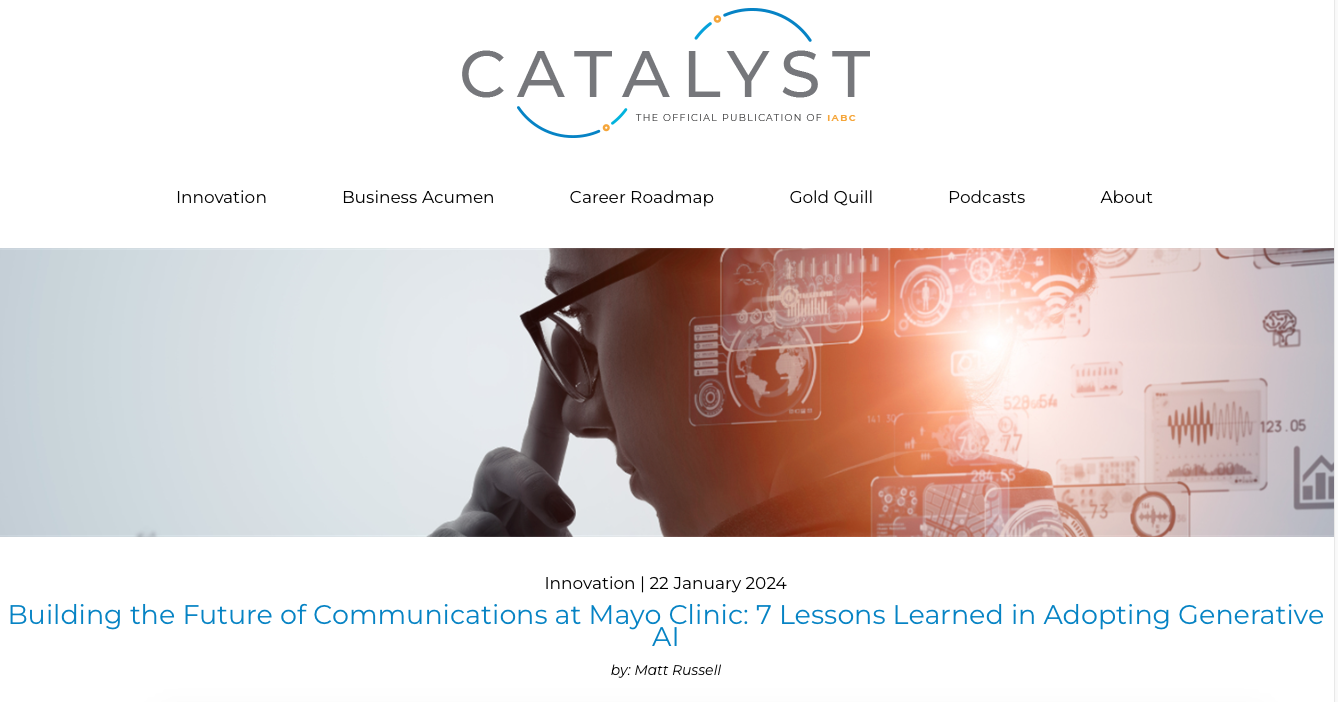
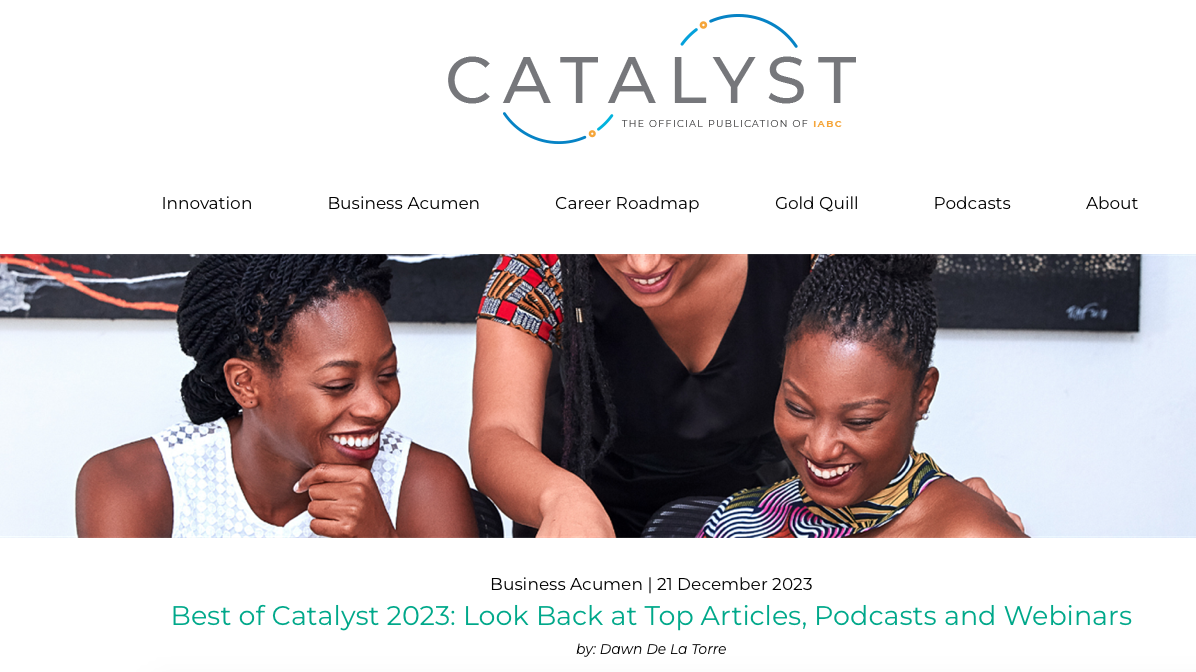
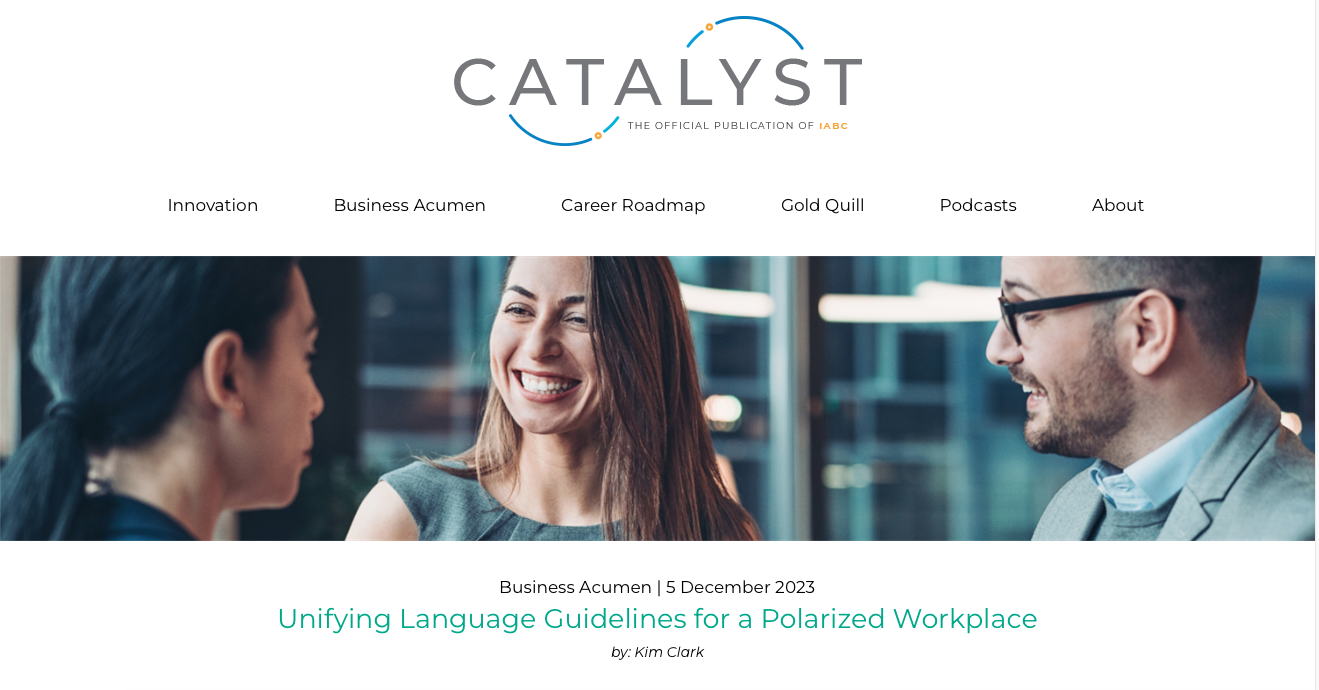

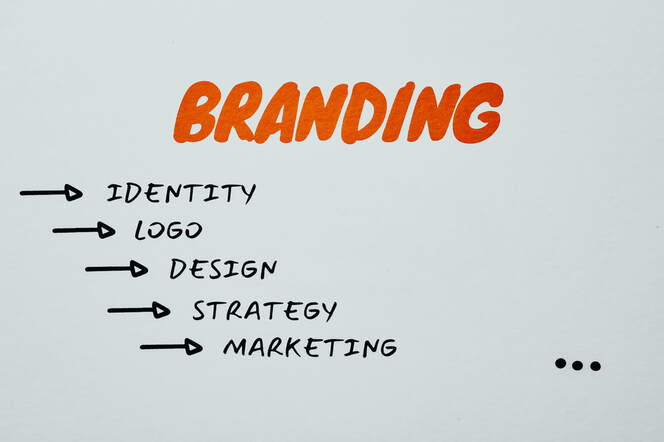


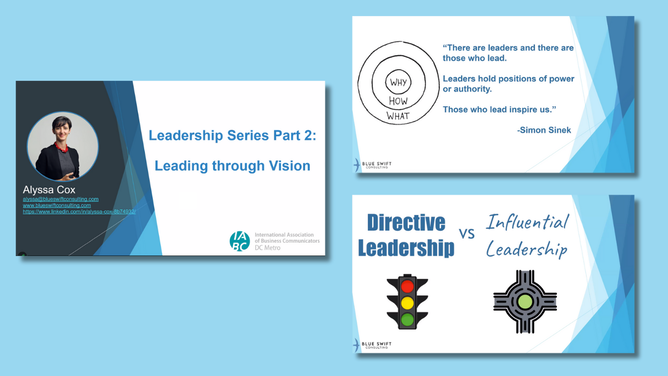
 RSS Feed
RSS Feed